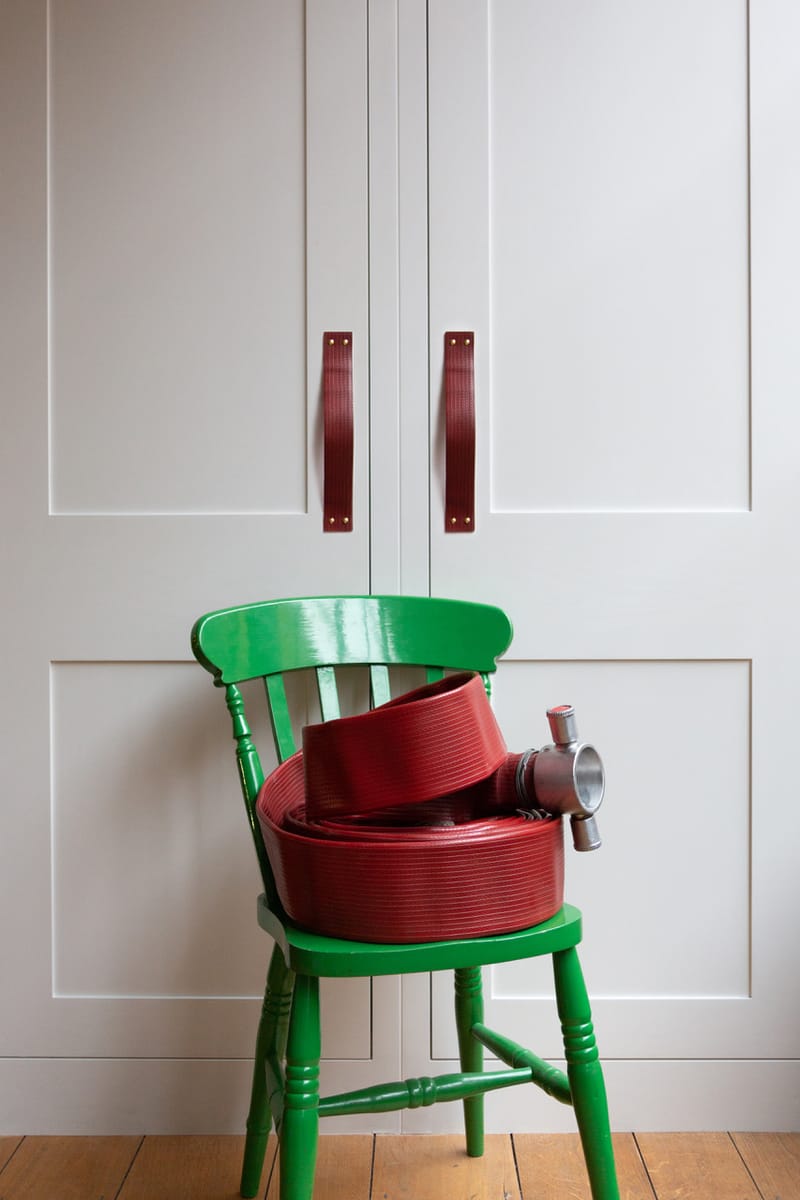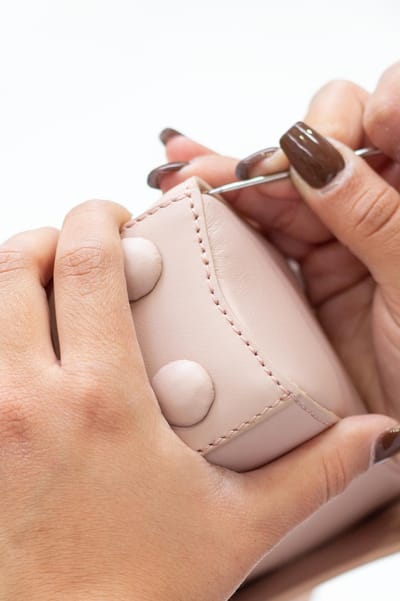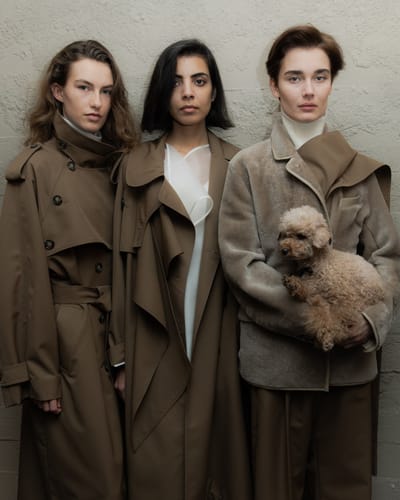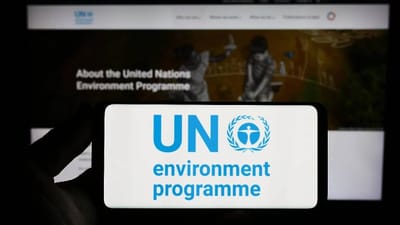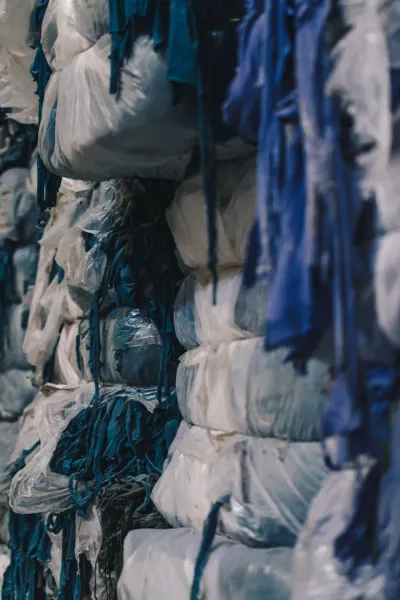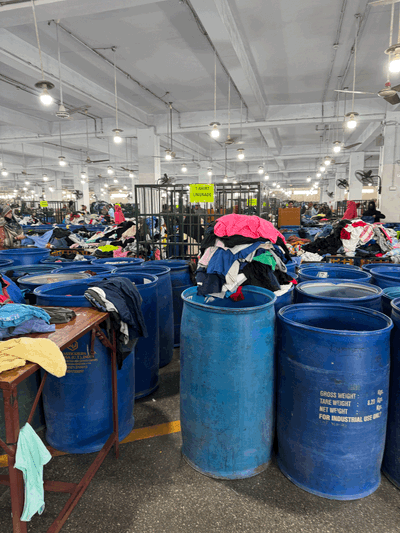In the heart of London, a chance encounter between Kresse Wesling and James (Elvis) Henrit with the London Fire Brigade sparked a remarkable journey. Witnessing the impending disposal of damaged fire hoses, they embarked on a mission to salvage these materials from landfill oblivion. Thus, in 2005, Elvis & Kresse was born, with a vision to repurpose waste into luxury products and contribute significantly to charitable causes.
Over the years, their dedication to sustainability has earned them accolades and partnerships, showcasing the transformative power of ethical entrepreneurship. Kresse Wesling shared insights into their journey, values, and aspirations.
Reflecting on their beginnings, Wesling recalls, “We weren’t entrepreneurs in search of an idea. We simply wanted to save the hose. Luxury came much later when we discovered that the same materials were used by luxury brands. Why use anything new when you can reuse instead?”
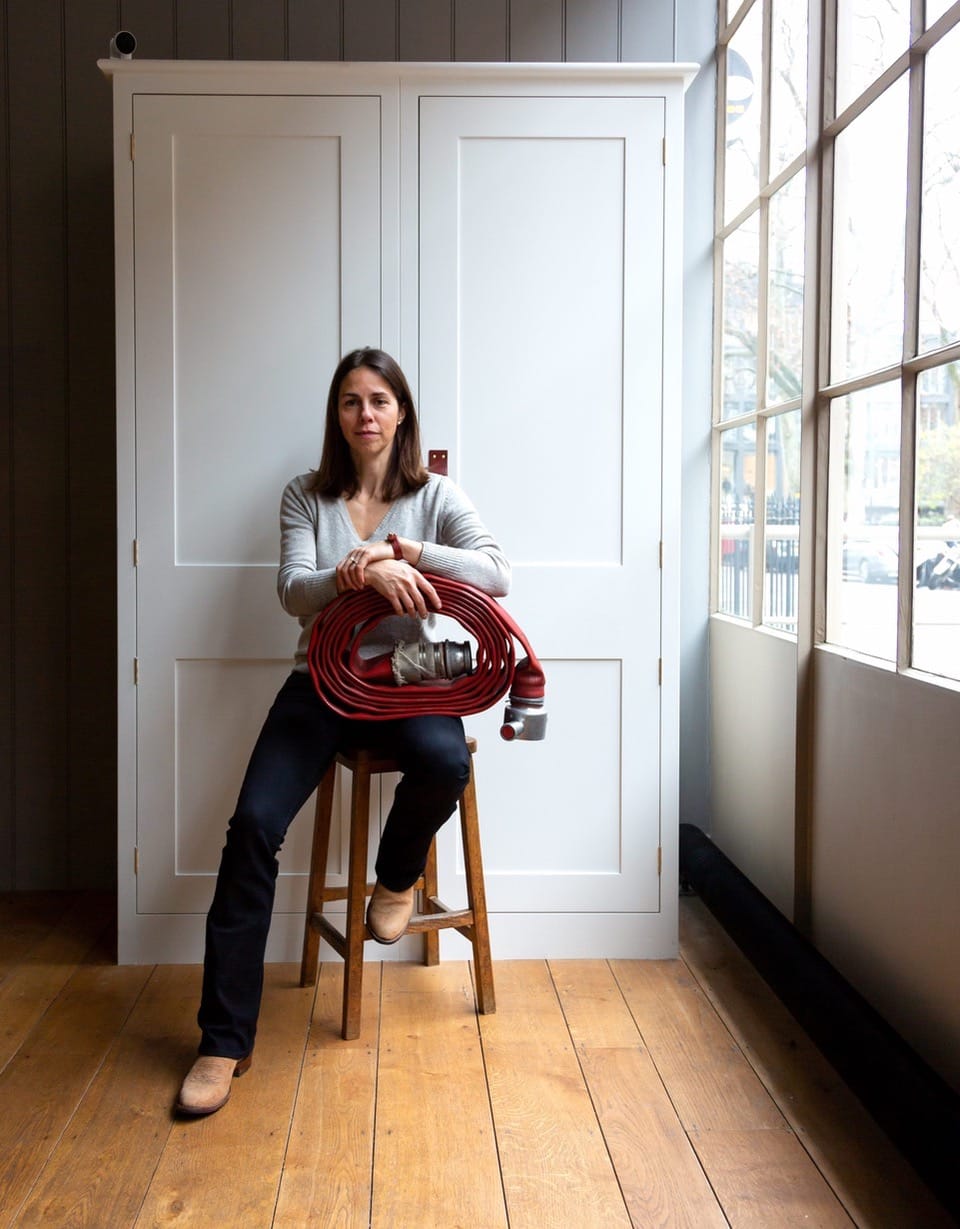
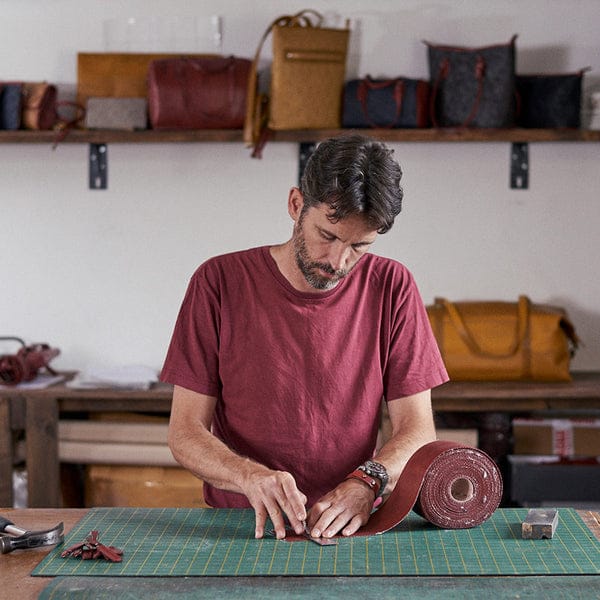
Kresse Wesling and James (Elvis) Henrit, founders of Elvis & Kresse.
"By 2010, we were large enough to be rescuing all of London's fire hoses, which meant we were in search of more waste challenges," Wesling begins. It was during this quest that they stumbled upon the staggering scale of the leather off-cut issue. "That same year, the UN released a study suggesting that there are at least 800,000 tonnes of leather off-cuts generated each year," she explains.
Faced with this monumental waste stream, Elvis & Kresse envisioned a circular solution that would revolutionize the way leather was utilized. "We had the idea that a completely circular solution was required, something designed for deconstruction," Wesling elaborates. It was at this juncture that Elvis, co-founder of the brand, conceived their innovative leather system, likened to Lego blocks. "Elvis invented our leather system, which works like Lego; you can make things, take them apart, and use the pieces to make something else," Wesling enthuses.
However, realizing this vision required collaboration on a grand scale. This led to a fortuitous partnership with the Burberry Foundation. "We met Burberry and started working on a plan that resulted in our partnership with the Burberry Foundation," Wesling recalls. Collaborating with such a prominent corporation presented its own set of challenges, but the rewards were immense. "There were definitely challenges working with such a large corporation, but genuinely it has been wonderful," Wesling reflects.
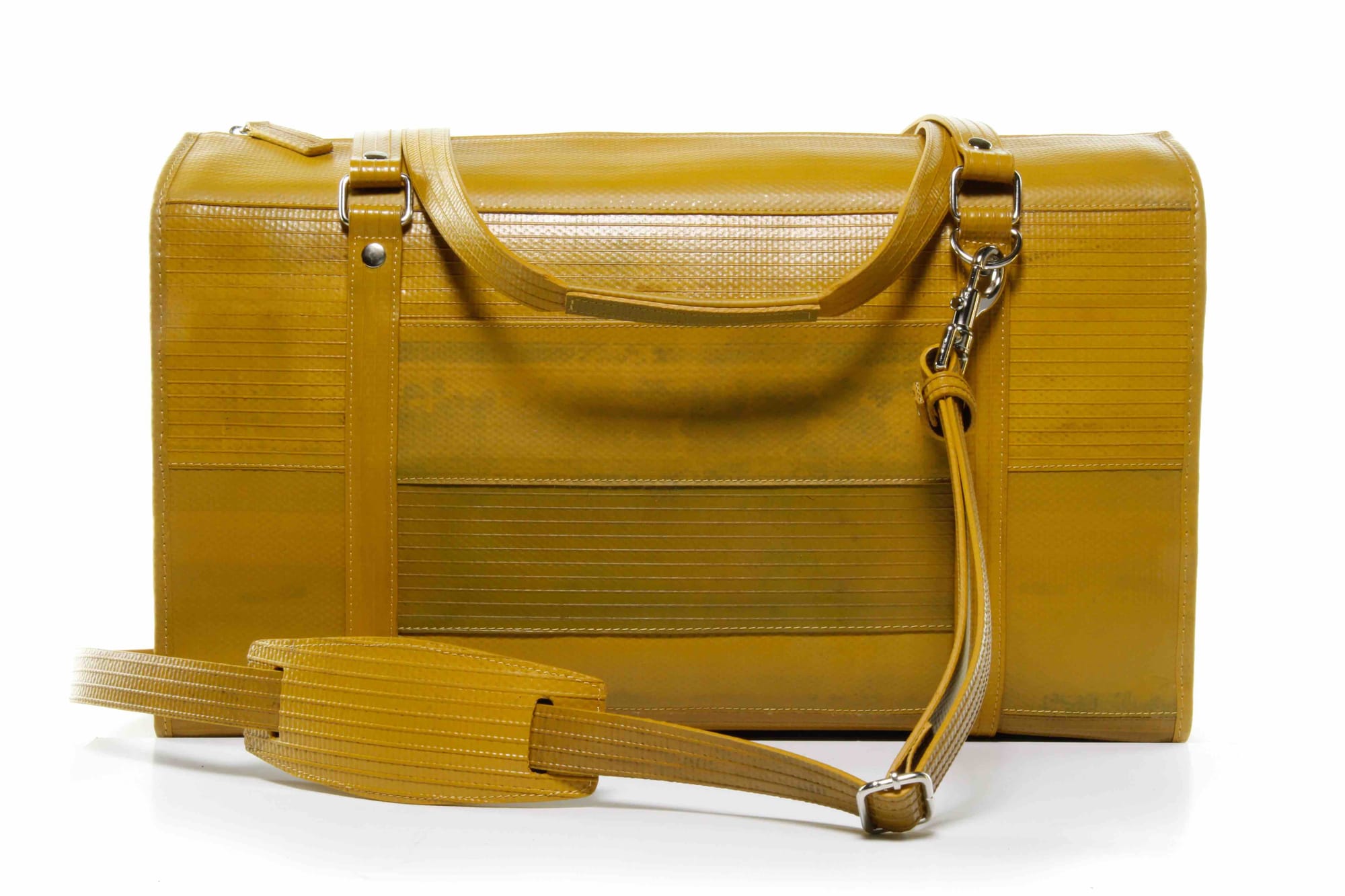
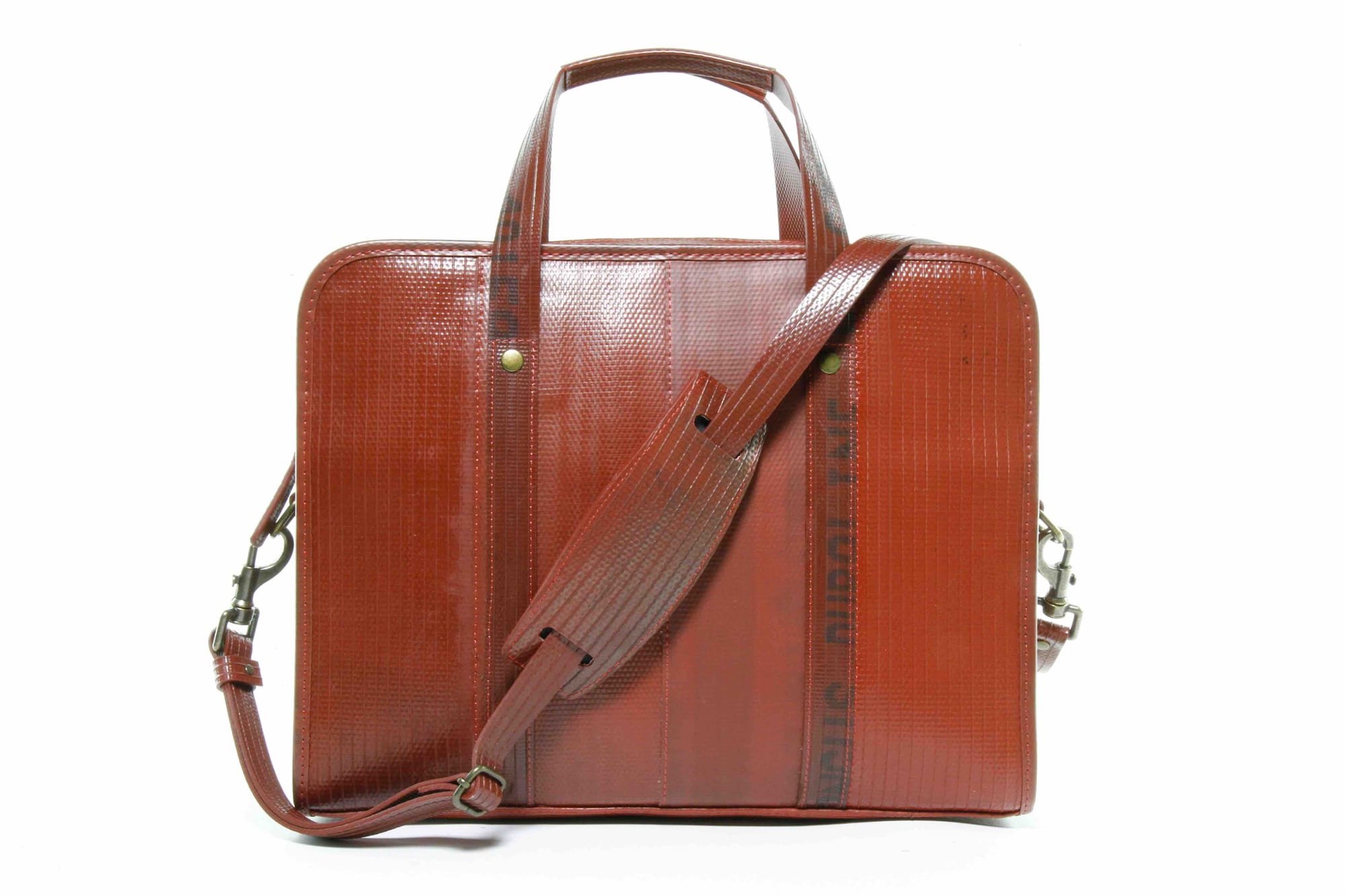
Through this partnership, Elvis & Kresse not only rescued Burberry's leather off-cuts but also scaled their innovative solution. "We have been able to scale our solution while rescuing their leather," Wesling confirms. Moreover, the collaboration yielded a significant by-product: the opportunity to give back. "We donate 50% of the profits from our leather project to Barefoot College International, where we create scholarships for women to train as solar engineers," Wesling proudly declares.
In essence, the Fire & Hide Collection embodies the marriage of sustainable innovation and social impact, showcasing Elvis & Kresse's unwavering dedication to transforming waste into beauty and opportunity.
When asked about the delicate balance between sustainability and luxury in their designs, Kresse Wesling dismisses the notion of a trade-off. "It isn't a balance really," she asserts. "We simply make the best quality products we can, in the most classic, utilitarian, and durable styles and shapes. Products made with this level of detail and integrity lead to customer satisfaction."
Their commitment to sustainability extends beyond materials to their operational ethos. With over 15 reclaimed materials used in their products, Elvis & Kresse adopts a ‘backwards design’ approach, letting the waste dictate its next life. “We start with the waste and then work out the next best possible second life for it,” explains Wesling.
Despite challenges in sourcing reclaimed materials, particularly for limited edition pieces, Elvis & Kresse maintains a resilient approach. “If we run out of a material, we celebrate the joy of a job well done and then go back to the reality of waste still going to landfills. We will never run out of things to save,” Wesling remarks.
Reflecting on the challenges of scaling their business while maintaining sustainability and ethical production, Wesling emphasizes the intrinsic joy of their approach. "Running any business is hard, but running a business with a genuine heart is the only way we can work," she muses. "Imagine over-producing poor quality products that you knew were costing the earth or exploiting your makers or growers... That would be challenging."
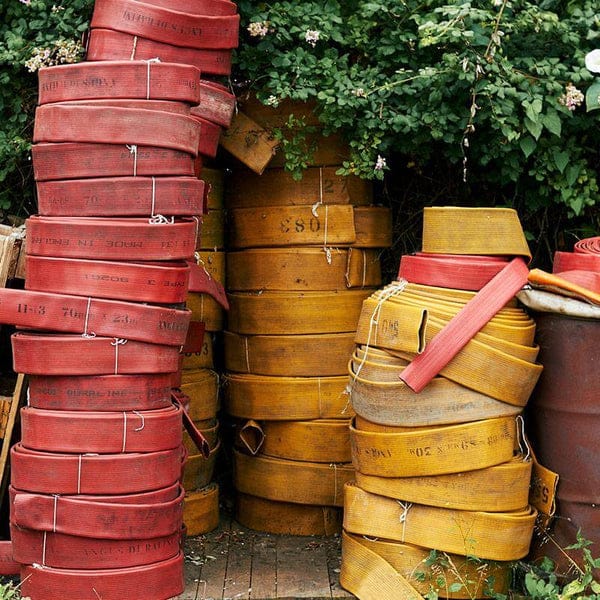
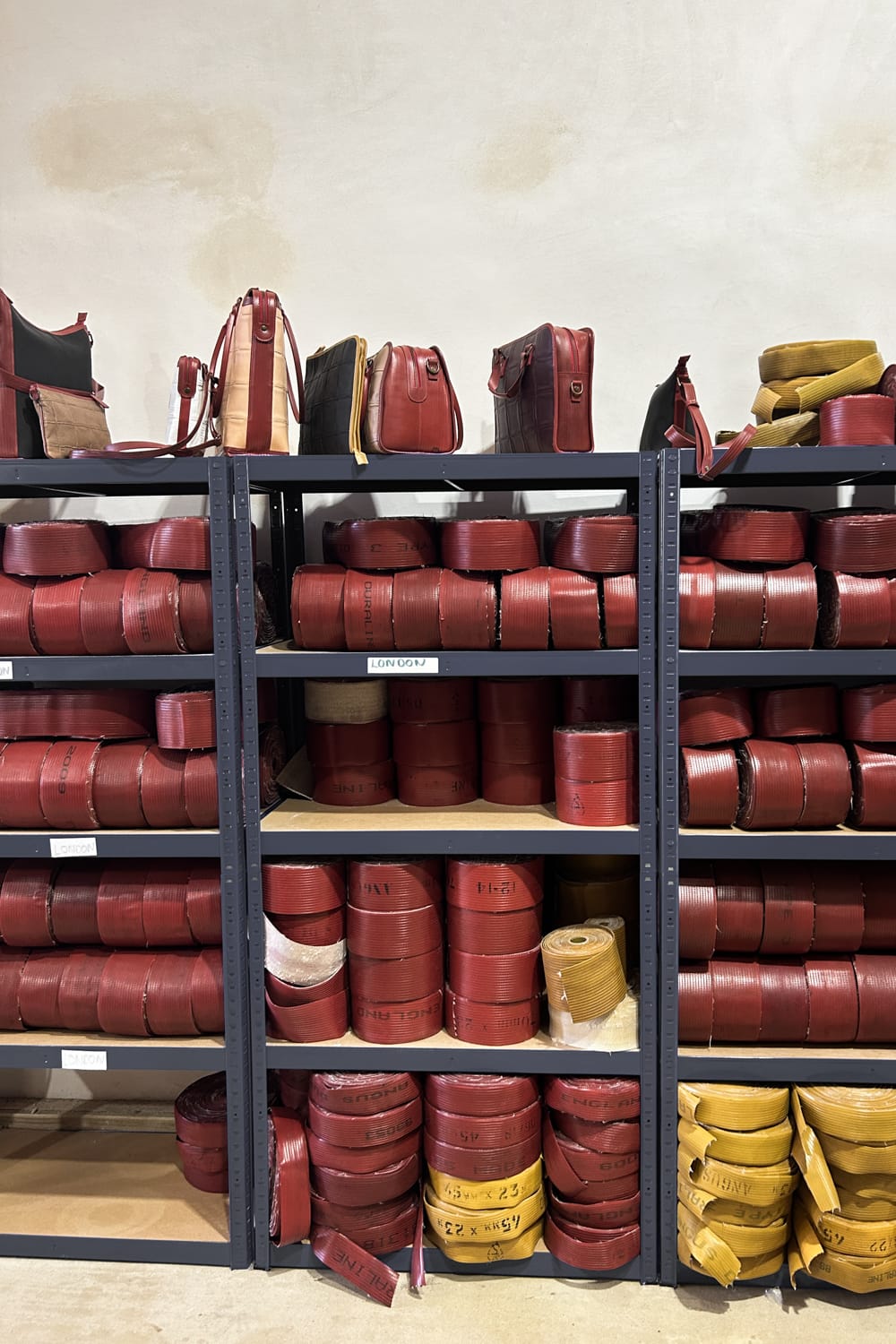
Their commitment to zero waste extends to their manufacturing process, meticulously ensuring that every item is 100% reclaimed and zero waste. This ethical handmade process, undertaken across their sites in Kent and Istanbul, emphasizes quality and sustainability.
A cornerstone of Elvis & Kresse’s ethos is their pledge to donate 50% of profits to charities aligned with their raw materials. “We choose our partners based on synergy with the waste we collect,” Wesling says. This philanthropic approach underscores their mission to drive positive social and environmental change.
As for the future, Elvis & Kresse envisions broader impact through innovation and expansion. With initiatives like their regenerative agriculture project, they aim to deepen their commitment to sustainability while pushing boundaries in luxury fashion.
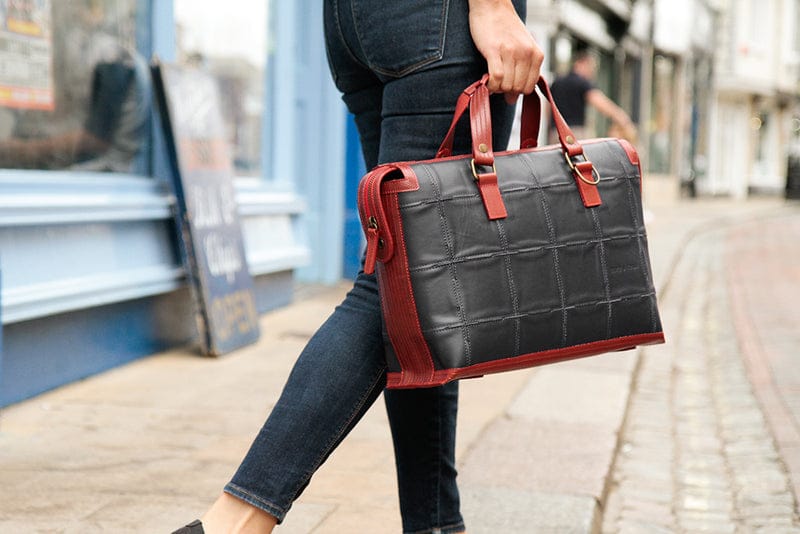
Their engagement with customers and communities, marked by transparency and openness, fosters awareness of sustainable practices and responsible consumption. Wesling encourages aspiring entrepreneurs to embrace sustainability boldly. “Start now and be bold. We don’t have time for extractive and exploitative business models.”
For Elvis & Kresse, success transcends business growth; it entails eliminating the concept of waste, transforming industries, and reversing climate change and biodiversity loss. “That would be success. Then we could retire,” muses Wesling, epitomizing their unwavering dedication to a sustainable future.

